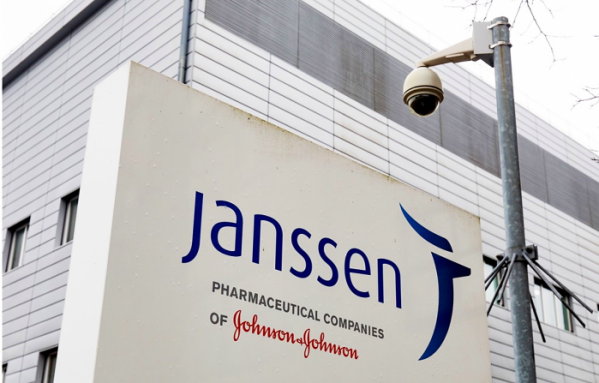기업
Janssen's amivantamab now try to crack into Tagrisso's adjuvant therapy market
by Sungmin Kim
Janssen, phase 3 of ‘amivantamab+lazertinib combi vs. Tagrisso’ as an adjuvant therapy “will soon be initiated”

Janssen Pharmaceutical will initiate phase 3 clinical trial that directly compares the 3rd generation EGFR TKI 'Lazertinib' combination therapy with AstraZeneca's 'Tagrisso (Osimertinib)' in an adjuvant setting after surgery.
This is an expansion to the earlier-stage in the market two years after Janssen began phase 3 of MARIPOSA clinical trials comparing combination therapy of which Lazertinib and EGFRxMET bispecific antibody 'Amivantamab' with Tagrisso in setting the primary treatment for EGFR mutated non-small cell lung cancer. For Janssen, it appears to be a winning move to enter the EGFR-mutated lung cancer market dominated by Tagrisso.
Tagrisso is changing the market for early-stage EGFR-mutated NSCLC. Tagrisso received marketing approval from the U.S. Food and Drug Administration (FDA) in 2020 for reducing the risk of patients’ disease recurrence or death by 83% compared to existing treatments with 3-year administration of Tagrisso in a postoperative therapy setting. At the European Society for Medical Oncology (ESMO) in September of this year, Tagrisso announced encouraging results that reduced the risk of recurrence or death by 73% in the two-year follow-up update of the ADAURA phase 3 clinical trial. However, the issue of recurrence still remains. The median disease-free survival (DFS) of patients was 5.5 years, and relapse occurred within 1.5 to 2 years after drug administration.
This is a market targeted by the combined administration of Lazertinib and Amivantamab. The decision is based on the judgment that combination can reduce recurrence. Professor Cho Byoung Chul, head of the lung cancer center at Yonsei Cancer Hospital, said at a press conference on the results of the global phase 3 clinical trial of 'Leclaza (brand name of Lazertinib)', held at the Grand Ballroom of the Plaza Hotel in Seoul on the 6th, that although the 3rd generation EGFR TKI drugs can stabilize the disease, they cannot eradicate it completely, and eventually the cancer will recur; monotherapy cannot completely prevent recurrence.
Professor Cho said, “The goal is to fundamentally prevent recurrence through the combined administration of Lazertinib and Amivantamab. In previous combined clinical trials (CHRYSALIS(2), MARIPOSA2), efficacy was demonstrated not only in patients who were first administered (naïve) TKI drugs, but also in refractory patients and multiple EGFR MET mutations.” “We are planning to conduct a global phase 3 clinical trial to compare combination therapy with Tagrisso soon.”
In that regard, the LASER03 global phase 3 clinical trial top-line results announced by Yuhan at ESMO ASIA 2022 last month are expected to serve as a driving force for expanding Lazertinib combination therapy. From LASER 03, Yuhan’s phase 3 clinical trial of Lazertinib, it proved superior efficacy than gefitinib for the first-line treatment for EGFR-mutated non-small cell lung cancer, confirmed efficacy data comparable to Tagrisso, a competing drug. It is also making points that can be differentiated from Tagrisso, including high efficacy compared to competing drugs in the EGFR L858R mutation and Asian subpolulation.
Yuhan Corporation plans to apply for a label change to the Ministry of Food and Drug Safety early next year as a first-line treatment for EGFR-mutated non-small cell lung cancer based on the results of the phase 3 clinical trial of LASER03. Leclaza was approved for domestic marketing in January of last year, and the application of insurance benefits began in July of this year. In the first half of this year, sales of Leclaza were KRW 6.9 billion, and sales of Tagrisso during the same period were KRW 52.1 billion, down 5.2% from the same period last year.














